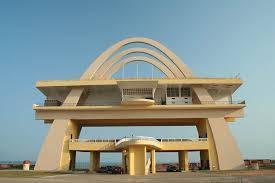Introduction:
Ghana, known for its vibrant culture and significant historical contributions, boasts a heritage that spans millennia. This article delves into the diverse epochs and pivotal events that have shaped Ghana into the nation it is today.
1. Ancient Civilizations:
• Ghana Empire (circa 300-1200 AD): Located in present-day southeastern Mauritania and western Mali, it was the first of the great medieval trading empires of West Africa. Renowned for its gold trade and administrative prowess, it set the stage for future kingdoms in the region.
• Ashanti Kingdom (17th century - 1902): Based in central Ghana, the Ashanti Empire rose to prominence through its military prowess and control over the gold trade routes. It resisted British colonization for decades before becoming a British protectorate.
2. European Contact and Colonial Era:
• Portuguese Arrival (15th century): The Portuguese were the first Europeans to establish contact with the region, seeking gold and slaves.
• Transatlantic Slave Trade: Ghana, then known as the Gold Coast, became a major hub for the transatlantic slave trade, with European powers establishing forts and castles along the coast.
• British Rule (19th-20th centuries): After various conflicts and treaties, the Gold Coast came under British control, eventually leading to the formation of the British Gold Coast colony.
3. Independence and Nationhood:
• Nationalist Movements: Led by figures like Kwame Nkrumah, the Gold Coast gained independence from Britain on March 6, 1957, becoming the first sub-Saharan African nation to do so.
• Formation of Ghana: Renamed Ghana after the ancient Ghana Empire, the country embarked on a path of nation-building, establishing democratic institutions and advocating for Pan-Africanism.
4. Post-Independence Challenges and Successes:
• Political Turbulence: Ghana experienced periods of military rule and political instability following independence, including coups and authoritarian regimes.
• Economic Development: Despite challenges, Ghana has made significant strides in economic development, becoming a regional leader in agriculture, mining, and telecommunications.
5. Modern Ghana:
• Democratic Governance: Ghana has established itself as a stable democracy, with peaceful transitions of power and a commitment to human rights and rule of law.
• Cultural Heritage: Rich in cultural diversity, Ghana celebrates its traditions through festivals, art, music, and literature, influencing global culture.
Conclusion:
Ghana’s journey from ancient civilizations through colonization to independence and modern nationhood reflects its resilience, cultural richness, and commitment to progress. As it navigates global challenges and embraces opportunities, Ghana continues to shape its future while honoring its vibrant history.
This article provides a comprehensive overview of Ghana’s history, highlighting key milestones, cultural achievements, and its evolution into a prominent nation in Africa and on the global stage. Adjustments can be made to focus on specific aspects or recent developments as needed.




No comments yet
Be the first to share your thoughts!